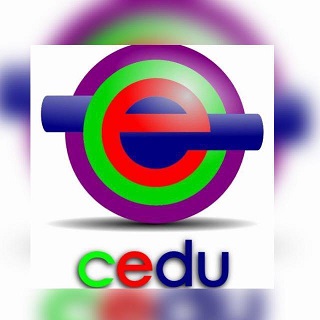THE CASE OF THE PEDAGOGICAL WORKSHOP A PROPOSAL FOR HEALTHY EATING AND SCIENCE TEACHING FOR AUTISTIC AND NON-AUTISTIC CHILDREN
Keywords:
Healthy Eating, Autism, Teaching, Inclusion, HealthAbstract
Despite discussions about inclusive education, we knew that there is a lack of employability in schools, especially with regard to the inclusion of children with Autistic Spectrum Disorder (ASD), a condition characterized mainly by difficulties in communication, social interaction and the maintenance of restricted behaviors and interests. In addition, many autistic people have food selectivity. Therefore, we sought to investigate possibilities for the inclusion of autistic children in remote education through a pedagogical workshop on healthy eating, exploring, for this, the use of culinary recipes, food challenges and children's videos. We sought to know what children understood about healthy eating, what they used to eat at meals, and also, if there were changes in their understanding of healthy eating. The research has a qualitative approach, being a case study and we collect the data through participant observation notes, children's productions and questionnaires applied at the beginning and at the end of the workshop. The results showed that the healthy eating workshop proved to be a favorable educational tool to help children participating in the construction of knowledge about healthy eating, including autistic children.
Downloads
References
BARDIN, L. Análise de conteúdo. Tradução: Luís Antero Reto e Augusto Pinheiro. São Paulo: Edições 70, 2016.
BRASIL. Lei nº 10.764, de 27 de dezembro de 2012. Institui a Política Nacional de Proteção dos Direitos da Pessoa com Transtorno do Espectro Autista; e altera o § 3º do art. 98 da Lei nº 8.112, de 11 de dezembro de 1990. Diário Oficial [da] República Federativa do Brasil, Brasília, DF, 2012.
CARVALHO, S. DA S.; SHAW, G. S. L. Relação entre família, escola e especialistas no processo de inclusão escolar de crianças autistas no município de Campo Formoso/BA. Cenas Educacionais, v. 4, p. e11868, 15 jun. 2021.
CERMAK, S. A.; CURTIN, C.; BANINI, L. G. Food selectivity and sensorysensitivity in children with autism spectrum disorders. Journal of the Academy of Nutrition and Dietetics, v. 110, n. 238, p. 238-246, 2010.
CHEROBINI, L.; NOVELLO, T. Educação Ambiental e alimentação saudável: o despertar de hábitos na educação infantil. Revista Eletrônica Científica Da UERGS, v. 4, n. 5, p. 669-684, 2018.
DE FIGUEIREDO, S. M. et al. Oficinas de culinária: método educativo de alimentação saudável. 2014.
KRINGEL, A. L. et al. Oficina de alimentação saudável em escolas públicas: relato de dois casos. Expressa Extensão, v. 21, n. 1, p. 42-53, 2016.
MORAES, R. Análise de conteúdo. Revista Educação, Porto Alegre, v. 22, n. 37, p. 7-32, 1999.
MOREIRA, M. A. Metodologias de pesquisa em ensino. São Paulo: Editora Livraria da Física, 2011.
OOI, K. L. et al. A meta-synthesis on parenting a child with autism. Neuropsychiatric disease and treatment, v. 12, p. 745, 2016.
SILVA NETO, A. de O. et al. Educação inclusiva: uma escola para todos. Revista Educação Especial, v. 31, n. 60, p. 81-92, 2018.
POSARA, A.; VISCONTI, P. Sensory abnormalities in children with autism spectrum disorder. Jornal de Pediatria, (Rio J.) v. 94, n. 4, Porto Alegre, July/Aug, 2018.
PRODANOV, C. C.; DE FREITAS, E. C. Metodologia do trabalho científico: métodos e técnicas da pesquisa e do trabalho acadêmico. 2ª Edição. Editora Feevale, 2013.
RODRIGUES, A. S.; CRUZ, L. H. C. Desafios da inclusão de alunos com transtorno do espectro autista (TEA) no ensino de Ciências e Biologia. Revista Eletrônica Pesquiseduca, v. 11, n. 25, p. 413-425, 2020.
XAVIER, M. F.; SILVA, B. Y. D.; RODRIGUES, P. A. A. Ensino de Ciências inclusivo para alunos com Transtorno do Espectro Autista e o uso de Sequências Didáticas. Encontro Nacional de Pesquisa em Educação em Ciências (ENPEC), v. 11, p. 1-12, 2017.
Published
How to Cite
Issue
Section
License
Copyright
The submission of originals to Cenas Educacionais (Educational Scenes - CEDU) implies the transfer, by the authors, of the publication rights. The copyright for the manuscripts published in this journal is the author(s), with CEDU rights over the first publication. Authors(s) may only use the same results in other publications by explicitly indicating CEDU as the means of the original publication.
Creative Commons License
Except where otherwise specified, the terms of a Creative Commons Attribution-ShareAlike 4.0 International License license apply to the material published in this journal, which allows unrestricted use, distribution and reproduction in any medium provided the original publication is correctly cited.






 This work is licensed with a License
This work is licensed with a License 